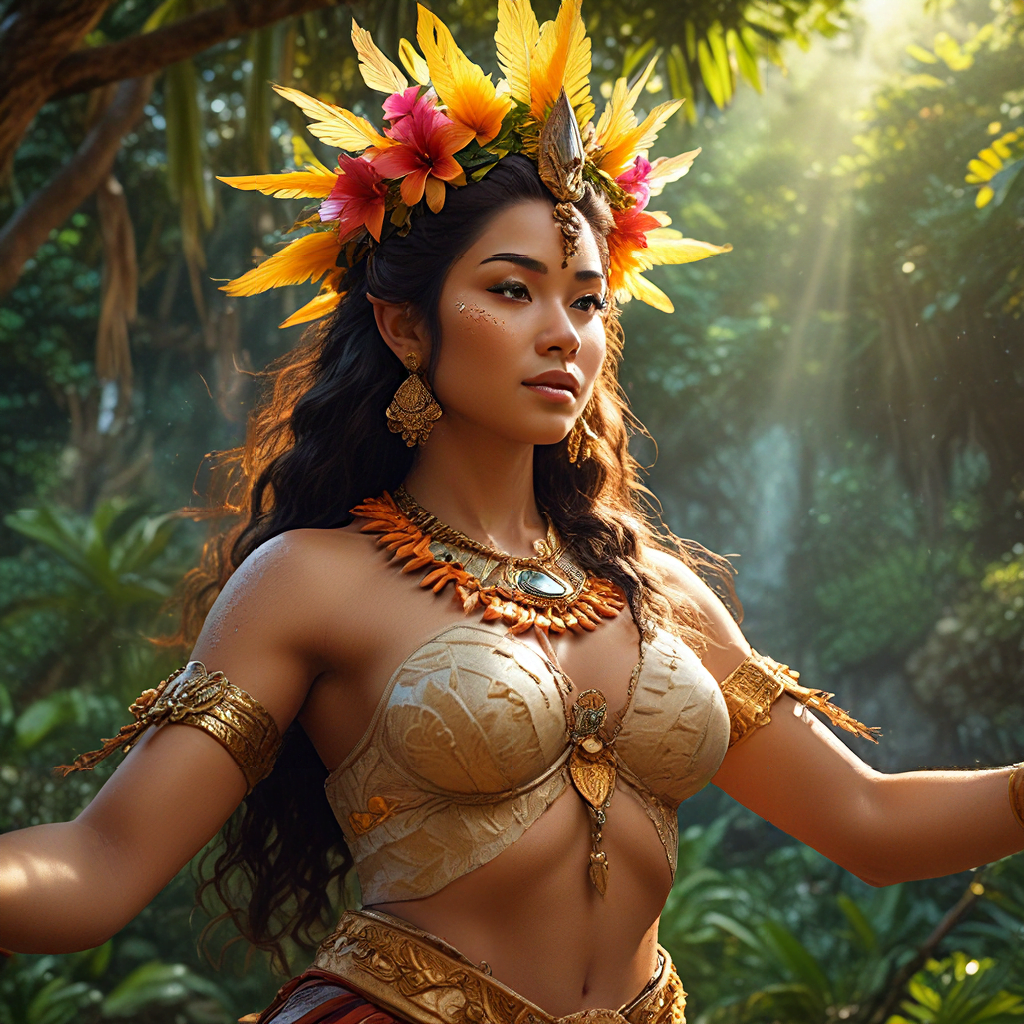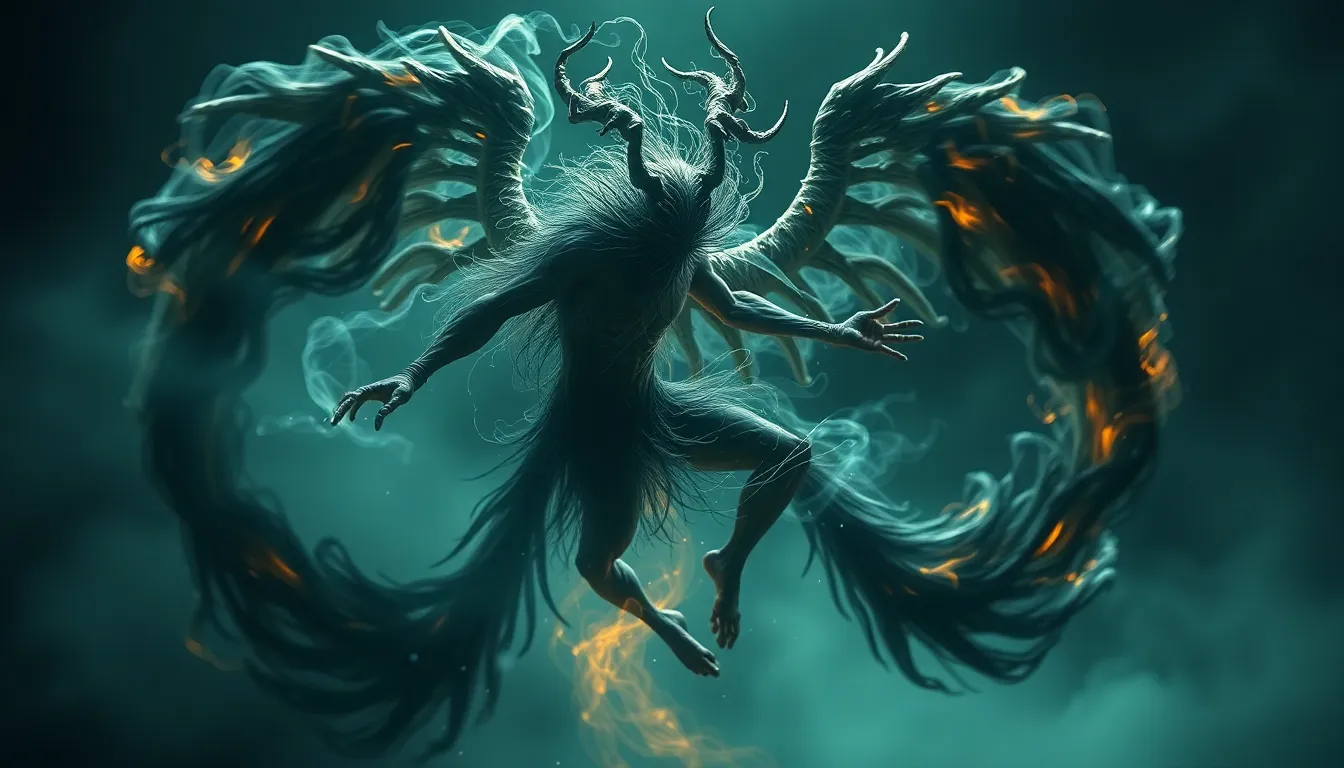Guardians of the Skies: Comparing Garuda’s Role to Other Avian Deities
I. Introduction
Avian deities have played pivotal roles in mythologies across various cultures, embodying the virtues and powers attributed to birds. From strength and protection to wisdom and insight, these divine beings have captured the imagination of humanity for centuries. Among them, Garuda stands out in Hindu mythology, revered not only as a symbol of power but also as a devoted servant of the god Vishnu.
This article aims to explore Garuda’s significance in comparison to other notable avian deities, shedding light on their unique attributes, roles, and cultural implications. By examining these figures, we can better appreciate the rich tapestry of mythology and the lessons they impart.
II. The Mythological Significance of Garuda
Garuda, often depicted as a massive bird or man with bird-like features, has its origins deeply rooted in ancient Hindu texts such as the Mahabharata and the Puranas. His stories convey themes of loyalty, bravery, and the eternal struggle between good and evil.
- Origins and stories: Garuda is said to be born from the sage Kashyapa and the deity Vinata. His narrative is filled with tales of his fierce battles against serpents, particularly the Naga, and his quest to obtain the elixir of immortality.
- Symbolism: Garuda embodies strength, speed, and unwavering loyalty. His swift flight represents the ability to transcend earthly boundaries, and his fierce nature showcases the protective instincts inherent in guardianship.
- Role as a vehicle: In Hinduism, Garuda serves as the vahana (vehicle) of Lord Vishnu, symbolizing the connection between the divine and the earthly realms.
III. Overview of Other Major Avian Deities
Garuda is not alone in the pantheon of avian deities. Several cultures have their own representations, each with distinctive attributes and narratives.
A. The Egyptian God Horus
Horus, often depicted as a falcon or a man with a falcon’s head, is one of the most significant deities in ancient Egypt.
- Symbolism and attributes: Horus symbolizes kingship, protection, and the sky. His right eye represents the sun, while his left eye represents the moon, embodying the balance of day and night.
- Role in mythology: Horus is known for his battles against Set, the god of chaos, to avenge his father Osiris. This struggle represents the eternal conflict between order and disorder.
- Protection: Horus was revered as a protector of the pharaohs and the nation, ensuring prosperity and safety.
B. The Greek Goddess Athena and her association with the Owl
Athena, the goddess of wisdom and warfare, is often associated with the owl, a symbol of knowledge and foresight.
- Wisdom and guardianship: Athena’s connection to the owl signifies her role as a guardian of wisdom and strategic warfare. The owl’s ability to see in the dark parallels Athena’s insightfulness.
- Cultural significance: In ancient Greece, the owl was a symbol of protection and guidance, often depicted alongside Athena in art and literature.
IV. Comparative Analysis: Garuda vs. Horus
When comparing Garuda and Horus, several similarities and differences emerge, revealing their unique cultural narratives.
A. Similarities in their roles as protectors
Both Garuda and Horus serve as protectors of their respective realms. Garuda protects Vishnu and the universe from evil, while Horus safeguards the pharaoh and the land of Egypt from chaos.
B. Differences in their mythological narratives and cultural contexts
Garuda’s narratives are deeply intertwined with Hindu cosmology and the epic tales of the Mahabharata, while Horus’s stories are rooted in the political and social fabric of ancient Egypt, particularly the dynastic struggles of its rulers.
C. Symbolic representations and artistic depictions
In art, Garuda is often depicted in dynamic poses, showcasing his strength and speed, while Horus is frequently portrayed in a regal manner, emphasizing his association with kingship and authority.
V. Comparative Analysis: Garuda vs. Athena
The comparison between Garuda and Athena reveals intriguing insights into their respective domains of wisdom and power.
A. The concept of wisdom and guardianship in both deities
Athena embodies wisdom and strategic thought, while Garuda represents the power to protect and overcome obstacles. Both serve as guardians, albeit in distinct ways.
B. Cultural implications of their representations
Garuda’s representation reflects the Hindu value of loyalty and strength, while Athena’s depiction emphasizes intelligence and strategic prowess, crucial for success in warfare and governance.
C. Contrasting symbolism: Garuda’s power vs. Athena’s intelligence
Garuda’s overwhelming physical strength contrasts with Athena’s intellectual capabilities, showcasing the diverse ways cultures interpret the attributes of their deities.
VI. The Role of Avian Deities in Cultural Identity
Avian deities like Garuda, Horus, and Athena significantly influence their respective cultures, shaping art, literature, and traditions.
A. How Garuda and other avian deities reflect their respective cultures
Garuda embodies the Hindu ethos of devotion and protection, while Horus symbolizes the political power and divine right of kings in Egypt. Athena reflects the Greek ideals of wisdom, courage, and civic responsibility.
B. The impact of these deities on art, literature, and tradition
These deities are celebrated in various forms of art, from sculptures and paintings to literature and theater, influencing societal values and beliefs.
C. Modern interpretations and representations in popular culture
In contemporary society, these avian deities continue to inspire various media, including films, literature, and video games, adapting their narratives to modern contexts.
VII. Lessons from the Guardians of the Skies
Avian deities offer profound lessons that resonate with human experiences.
A. The significance of avian symbolism in human society
Birds often symbolize freedom, transcendence, and the connection between the earthly and the divine, echoing humanity’s aspirations and struggles.
B. Moral and ethical lessons derived from Garuda and other avian deities
Garuda teaches loyalty and the importance of standing against evil, while Athena represents the value of wisdom and strategic thinking in overcoming challenges.
C. The enduring legacy of these mythological figures in contemporary spirituality
The stories of these avian deities continue to inspire spiritual practices, offering insights into the human condition and the search for meaning.
VIII. Conclusion
Garuda’s unique role among avian deities highlights the diverse ways cultures interpret the powers of nature and the divine. Understanding these mythological figures fosters a deeper appreciation for the narratives that shape our cultural identities.
As we navigate the complexities of modern life, the guardians of the skies remind us of the enduring significance of wisdom, strength, and loyalty, encouraging us to draw from the lessons of the past to forge a better future.

![[TOTK] fuse be like](https://i.ytimg.com/vi/lT-oqm1Q0uc/hqdefault.jpg)


